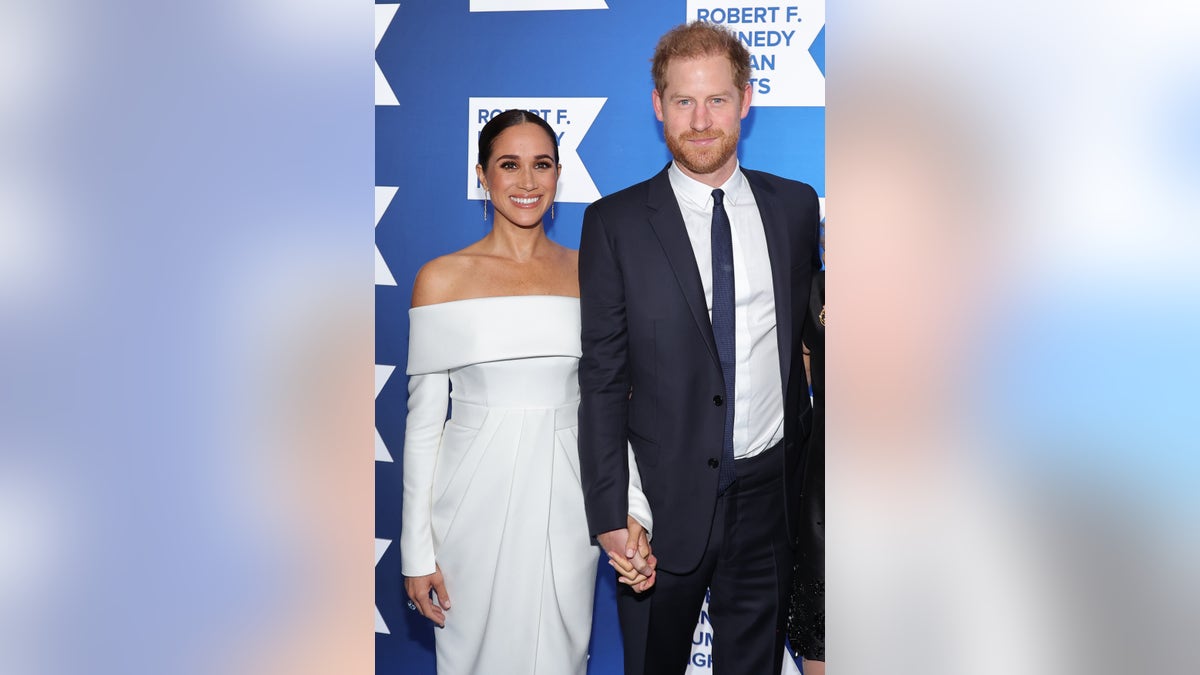In a striking commentary on the ongoing dynamics between the Sussexes and the British royal family, it appears that the media’s obsession with Prince Harry and Meghan Markle has not waned since their recent trip to Nigeria.
In fact, the UK press seems to be grappling with the success of that visit, which defied their negative portrayals of both the couple and the African nation.
Despite the barrage of criticisms aimed at Nigeria, the warm reception that Harry and Meghan received there continues to baffle their detractors.
Three months after their Nigerian adventure, the media is still fixated on the couple, especially now that they are reportedly planning a trip to Colombia.
This new development has elicited further scrutiny, with many in the UK media expressing skepticism about Colombia’s safety.
However, the Colombian president has countered these claims, affirming that Harry and Meghan will be welcomed with open arms, just as they were in Nigeria.
Richard Fitzwilliams, a royal commentator, weighed in on this situation, suggesting that the Sussexes’ successful Nigerian trip has set the stage for an equally impactful visit to Colombia.
He noted that the publicity generated by Harry and Meghan’s travels far surpasses anything the royal family could muster at this point.
It seems the royal family has yet to recover from the shock of the Sussexes’ popularity abroad, which starkly contrasts with their own relatively muted public engagements.
Fitzwilliams emphasized that the Sussexes’ global appeal is unmatched, stating that the royal family, particularly members like William, Kate, Charles, and Camilla, simply cannot compete.
Their lack of charisma and engagement has left them trailing behind Harry and Meghan, who continue to draw significant attention wherever they go.
The royal family’s apparent unwillingness to adapt or engage more meaningfully with the public only exacerbates their situation.
As the Sussexes prepare for their Colombian adventure, it raises questions about how the royal family will respond.
Fitzwilliams expressed concerns that Harry and Meghan might leverage their growing fame to highlight the rifts within the royal family, although it’s worth noting that the couple has generally refrained from direct attacks.
Instead, they seem focused on their own endeavors, which resonate more with the public than the royal family’s traditional engagements.
The royal family’s struggles to connect with the public have become increasingly evident.
While Harry and Meghan are invited to various countries, the remaining royals often find themselves having to request invitations, reflecting a stark difference in global perception.
This disparity indicates a deeper issue within the royal family, where members appear disengaged from the very people they are meant to represent.
Fitzwilliams pointed out that the Sussexes’ ability to remain relevant and popular stems from their authenticity and willingness to embrace new challenges.
In contrast, the royal family’s reluctance to evolve or address contemporary issues leaves them looking stale and disconnected.
The Sussexes have managed to carve out a niche for themselves, thriving in their new life in the United States while the royal family remains mired in tradition.
It’s clear that the media’s attempts to undermine Harry and Meghan have largely failed.
The couple has not only established themselves as influential figures but have also built a brand that resonates with audiences worldwide.
This success has undoubtedly stung the royal family, who may have expected the Sussexes to falter after stepping back from royal duties.
The ongoing narrative surrounding the Sussexes illustrates a broader shift in public sentiment.
Many now view Harry and Meghan as relatable figures who embody a modern approach to life and philanthropy, contrasting sharply with the more reserved and traditional image of the royal family.
This evolution in perception poses a significant challenge for the monarchy as they navigate their future relevance.
As the Sussexes continue to make headlines globally, it seems unlikely that the royal family can reclaim the spotlight.
The royal commentators are beginning to acknowledge this reality, admitting that the Sussexes’ charm and relatability are qualities that simply cannot be replicated.
Their journey, marked by resilience and determination, serves as a reminder of the changing tides within the royal narrative.
In light of this, it’s evident that the Sussexes have successfully forged their path, leaving behind the constraints of royal expectations.
As they embark on new adventures, the world watches closely, eager to see how their influence will continue to grow.
The royal family, meanwhile, may need to reassess their strategy if they hope to regain any semblance of the public’s affection.
The stark contrast between Harry and Meghan’s global appeal and the royal family’s struggles highlights a significant cultural shift.
As this story unfolds, it will be interesting to see how both parties adapt to the evolving landscape of public opinion and engagement.

